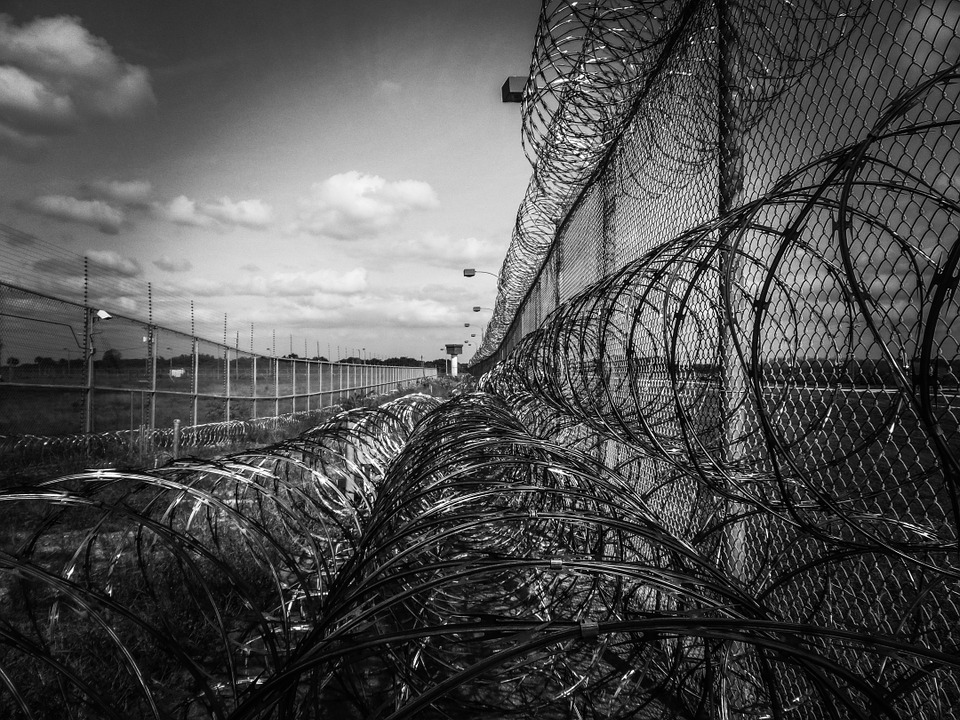PM Apologizes For “Stain on Canada’s Past”
The Canadian Government and Law Offices Are Recommitted to Helping Refugees Seeking Asylum in the Country
In continuous efforts to support the crisis facing Syrian refugees, many legal offices are assisting newcomers entering Canada with the immigration process. Despite various efforts by politicians, lawyers, and civilians to support those who have experienced war and trauma by settling them in a new home, the Canadian government has not always been so supportive of migrants seeking asylum.
On May 18th, Prime Minister Justin Trudeau apologized for what he called a “stain on Canada’s past” that occurred 102 years ago. This apology is being echoed by other party leaders while law offices and civilians do all they can to offer assistance and expertise to those that need it. The event Trudeau has apologized for involves the Japanese steamship Komagata Maru being barred from docking upon its arrival in Vancouver on May 23rd, 1914, turning away hundreds of refugees hoping to immigrate into the country.
The steamship, carrying 376 migrants, was turned away due to exclusionary Canadian legislation designed to curb immigration from India. It had been travelling from Hong Kong and carried mainly refugees from Punjab. Though the passengers were, for the most part, British subjects (from a British-occupied territory in India), the policy that denied them entry into Canada involved a regulation where immigrants had to travel by continuous passage from their country of birth or citizenship. Only those traveling by “through” tickets, purchased before leaving their country of origin, would be allowed to enter the country. The ship sat in the harbour for two months until the Canadian military escorted the Komagata Maru out of their waters on July 23rd, 1914.
Once the migrants returned to Budge-Budge, India, a riot ensued and 19 passengers were shot while many others were imprisoned. Trudeau offered sincere apologies for Canada’s indifference at the time, for the discriminatory laws, and for the government not offering an apology to those seeking Canada’s support sooner. His sentiment was echoed by other party leaders, including interim opposition leader Rona Ambrose.
Trudeau promises to recommit the country to doing better for those seeking asylum in Canada. He states that “we have learned, and will continue to learn, from the mistakes of our past,” and that those mistakes must not be repeated. This commitment is reflected in Canada’s dedication to Syrians entering the country, as well as Canada’s currently evolving policies viewing immigration as the first step towards citizenship.
Refugee and immigration lawyers are also committed to assisting those seeking asylum in Canada. Many refugee law offices offer support to newcomers on navigating legislation when trying to gain citizenship in the country. It is important to stay informed on the many changes being made by the Liberal government—changes to help students and refugees alike gain residency in the country. The government and lawyers’ combined efforts, moving forward, will hopefully reflect this newfound dedication towards refugees and keep harm from happening to migrants seeking Canada’s support in the future.
CBSA Seeking Alternatives to Detention
In Response to Criticism, the CBSA Launched a Federal Tender for their Alternative to Detention (ATD) Program
According to a federal tender posted by the Canadian Border Services Agency in May, the CBSA is asking for alternatives to custody when tracking detainees. The tender noted there are approximately 600 non-Canadians being held in custody and are creating an Alternative to Detention (ATD) program. However, a University of Toronto study indicated more than 7,300 migrants detained by CBSA in 2013 and there is not much indication this number has gone down.
Some of the alternatives suggested for the ATD include “a community supervision program supported with electronic supervision tools,” especially when managing detainees being held under the Immigration and Refugee Protection Act. Though they did not provide details on how they would supervise detainees electronically, it is likely they are referring to ankle monitors for GPS tracking, commonly used in the justice system.
As one of the only law enforcement agencies in Canada that does not undergo an external oversight by an independent body, the CBSA has received criticism for its detention practices. Many migrants are imprisoned in provincial facilities across the country, and there is no limit on how long migrants can be detained. Some face lengthy prison stays without a criminal charge.
Spokeswoman Wendy Atkin noted that CBSA officers are required to consider “all reasonable alternatives before detaining someone for immigration purposes.” Despite this, a large number of migrants remain in custody and approximately 15 migrants have died under custody of the CBSA since 2000. In accordance with the Immigration and Refugee Protection Act, CBSA can detain migrants when they pose a threat to the public, when the individual cannot prove their identity to the satisfaction of an officer of the CBSA, when they pose a danger to the public, or when it is believed the individual will not appear to their immigration hearings or proceedings. These arrests are allowed to occur without a warrant; and individuals may be held in one of the three federal holding centres or housed in a provincial detention facility with convicted criminals.
Despite progress being made, a 2013 study conducted by McGill psychologist Janet Cleveland has found immigration detainees suffer various mental health conditions after spending time in detention, including post-traumatic stress disorder, anxiety, and depression. Some argue monitoring detainees electronically would only be an extension of Canada’s detention regime. As one of the only developed country in the world that detains migrants in prisons and has no limits on how long a migrant can be detained, some argue the cost of detaining migrants to maintain control over the detainee while a case is pending comes at too high a cost, both to the detainee as well as to Canadian taxpayers—especially when these detainees do not pose a threat to security.
If you are unsure what your rights are, or need additional support in navigating the Canadian immigration and refugee system, contact an immigration lawyer in Canada. For those coming to Canada, whether they are migrants or refugees seeking asylum, Canadian immigration lawyers in the country do their best to support and advocate on behalf of their needs.
True North Strong and Free
Canadian-born or immigrant, 83% of Muslims in Canada are proud of Canadian heritage despite facing discrimination, shows national survey
There is no doubt about it, Muslims are one of the most misunderstood religious groups in Canada. Discrimination towards and even hatred of Islam is alive and well in this country, a fact that may come as a surprise to those who believe in Canada’s reputation of progressive ideologies and acceptance of difference. Canada's reputation is one thing, but a society that is truly free of discrimination and ignorance is another – perhaps a utopia that can only exist in imagination. Turn on the television and it’s likely you’ll come across a story about a mosque that was defaced with graffiti, or an employee who dealt with discrimination in the workplace because of their belief in Islam. And it goes without saying; the Liberal Party’s welcoming of over 25,000 Syrian refugees has also given rise to passionate debates online and off (at the time of this article’s publication, 27,005 Syrian refugees have immigrated to Canada).
But there are always two sides to every story. If we are to only focus our attention on the negativity that Muslims face, then we discount that Canada has, in some ways, made progressive steps in ensuring the freedom and acceptance of all its residents, despite religious beliefs or ethnicity.
The Environics Institute, a non-profit organization dedicated to public opinion and social research in Canada, conducted a survey in an effort to gain a better understanding of Canadian Muslims and non-Muslims’ feelings about a number of topics surrounding Islam. Some of these topics include pride and belonging, Muslim identity, integration versus separation in Canadian society, perception of domestic support for violent extremism, homosexuality, and more.
Of the 600 Muslims in Canada that were surveyed, 83% of them feel very proud to be living in Canada, a 10% increase from the findings in Environics Institute’s 2006 survey released a decade earlier. Their greatest sources of pride? The fact that Canada is a free country with a democratic government and a multicultural population. Interestingly enough, when they were asked what their least favourite thing about Canada was, 31% answered the cold weather while only 13% answered discrimination of Muslims/others.
Rukshana Khan, an award-winning author of children’s books who moved to Canada from Lahore, Pakistan when she was three, says that she is a true Canadian; her hijab and brown skin does not invalidate or lessen her national identity, even though some may think they do. Rukshana may only be one person, but her sentiments echo those in the Muslim community across Canada.
Fatima Alaso, who also wears a hijab, was born to Somali parents who immigrated to Canada. Like many Muslims in Canada, she knows what it’s like to be a target of Islamophobia. A man had berated her and her friend in downtown Toronto with what seems to be the go-to insult: “Get out of my country, you terrorists”.
With regards to immigration in Canada, it begs the question that if there was an influx of Muslims or another religious group coming into Canada due to events that caused the Syrian refugee crisis, how would Canadians react? We can always examine our reactions to the Syrian refugees and look back at our history in welcoming Vietnamese refugees escaping a Communist regime in 1979, or the thousands of Hungarian refugees that came in 1956.
Ruskahna and Fatima’s experiences are reflective of thousands of Muslims in Canada, a sign that we have to continue to work on making Canada a safe haven for all cultures and religions. That being said, if the results of the survey are any indication of the future in terms of achieving harmony between Muslims and non-Muslims in Canada, then there is a reason to be optimistic, at least from the perspective of the Muslim community.
Supporting Immigration to Canada
Immigration Lawyers in Canada Provide Extra Support for HIV-Positive Immigrants
Navigating the Canadian immigration system is difficult, even in the best of circumstances. Newcomers understand the system is confusing, complex, and intimidating, but for HIV-positive immigrants, health and social barriers may cause additional anxiety around how their status will be affected. Thankfully, there are not-for-profit groups that help those immigrating to Canada with HIV-positive status, including The Purpose Society in British Columbia. The Purpose Society aims to connect immigrants with health care and immigration lawyers in Canada who specialize in HIV-positive immigration.
Immigration and HIV-Testing
Since 2002, Citizenship and Immigration Canada requires a full medical examination that includes an HIV test for all individuals 15 years of age and older. Individuals younger than 15 years are tested if they have received blood or blood products, who have a known HIV-positive mother, or who are potential adoptees.
HIV-positive immigrants carry a great deal of fear and uncertainty regarding their health status and how it may affect their application. Although HIV is not considered a danger to public health in Canada, individuals still fear being stigmatized not only by Canadian society, but by their families and communities as well. For this reason, many remain silent about their diagnosis.
Medically Inadmissible?
Immigration to Canada can be refused based on medical reasons that make an individual inadmissible. A foreign national is inadmissible on health grounds if their health condition is likely to be a danger to public health; is likely to be a danger to public safety; or might reasonably be expected to cause excessive demand on health or social services. Since HIV is not considered to be a danger to public health, HIV-positive status does not automatically make one inadmissible to the country. However, individuals may be considered inadmissible if they will pose a high demand on health and social services. Due to the high cost of HIV medication, an HIV-positive immigrant may be considered inadmissible.
Exemptions from the Requirement to not Cause Excessive Demand on Health or Social Services
A foreign national who might reasonably be expected to cause excessive demand on health or social services cannot be found inadmissible if the foreign national:
- Has been determined to be eligible to be sponsored as a spouse, common-law partner, or child;
- Has applied for a permanent resident visa as a Convention refugee or a person in similar circumstances;
- Is a protected person; or
- Is the spouse, common-law partner, child, or other family member of a foreign national who is a protected person, has applied for refugee protection, or has been determined to be eligible to be sponsored as a spouse, common-law partner, or child.
These exceptions mean it is important for HIV-positive immigrants to obtain reliable and skilled legal support from immigration lawyers in Canada. Many immigration lawyers will have specific knowledge surrounding HIV-positive immigration policies. The immigration lawyer should also be someone that the individual feels comfortable disclosing their full situation to. This ensures they will have the best legal support available to them.
It is important to remember that, even in Canada, HIV can be a difficult topic to address and still holds a social stigma. Social, medical, and legal support can help HIV-positive immigrants find compassion and security in their new home country.
Trauma-Informed Care
On April 18, 2016, Connecting Ottawa, a network of community health, legal, immigration, disability, and social service agencies working to improve access to justice for linguistic minorities in Ottawa, hosted a conference entitled “Sounds Traumatic: Rethinking What Trauma Means for Legal and Social Work.” Utilizing a trauma-informed approach is important when working with new immigrants and refugees who may have experienced traumatic situations in their home countries. The conference was particularly timely given the recent arrival of new Syrian refugees to Ottawa.
Trauma-informed care is a framework that prioritizes safety and trust between service-providers and their clients. It involves understanding, recognizing, and responding to the effects of all types of trauma, including physical, psychological and emotional trauma. Therefore, trauma-informed care emphasizes the safety of both clients and service-providers. By providing trauma-informed care lawyers, social workers, and other practitioners are helping clients build and retain a sense of control and empowerment in their own situations.
It is important for lawyers working within a trauma-informed approach to continually question their own assumptions. Unfortunately, there are tendencies amongst individuals working with new immigrants, and particularly with refugees, to project vulnerability onto their clients as well as to medicalize suffering. Consequently, presenters at the Connecting Ottawa conference repeatedly emphasized that it is important not to treat refugees like “refugees.” Instead, practitioners should remain open to the fact that distress does not necessarily equate a mental disorder — distress can simply be a normal response to an abnormal situation.
Trauma-informed care also recognizes that post-migratory stressors can result in stress that did not exist prior to an immigrant or refugee arriving in Canada. For example, isolation, often stemming from lack of English or French language skills or a lack of employment, can have a significant effect on an individual’s mental health. Additionally, practitioners should also remember that different cultures have different understandings of mental health. For example, some clients may describe their mental health by using physical descriptors and other clients may be extremely hesitant to discuss their mental health due to cultural stigma.
Overall, using a trauma-informed approach requires the lawyer or other service provider to consider the context and understand the strengths, prejudices, weaknesses, and expertise of all individuals involved in a client’s case. While doing so may take more time and appear to be more difficult, it is necessary in order to fully allow for the range of experiences and reactions that a trauma survivor may experience.





